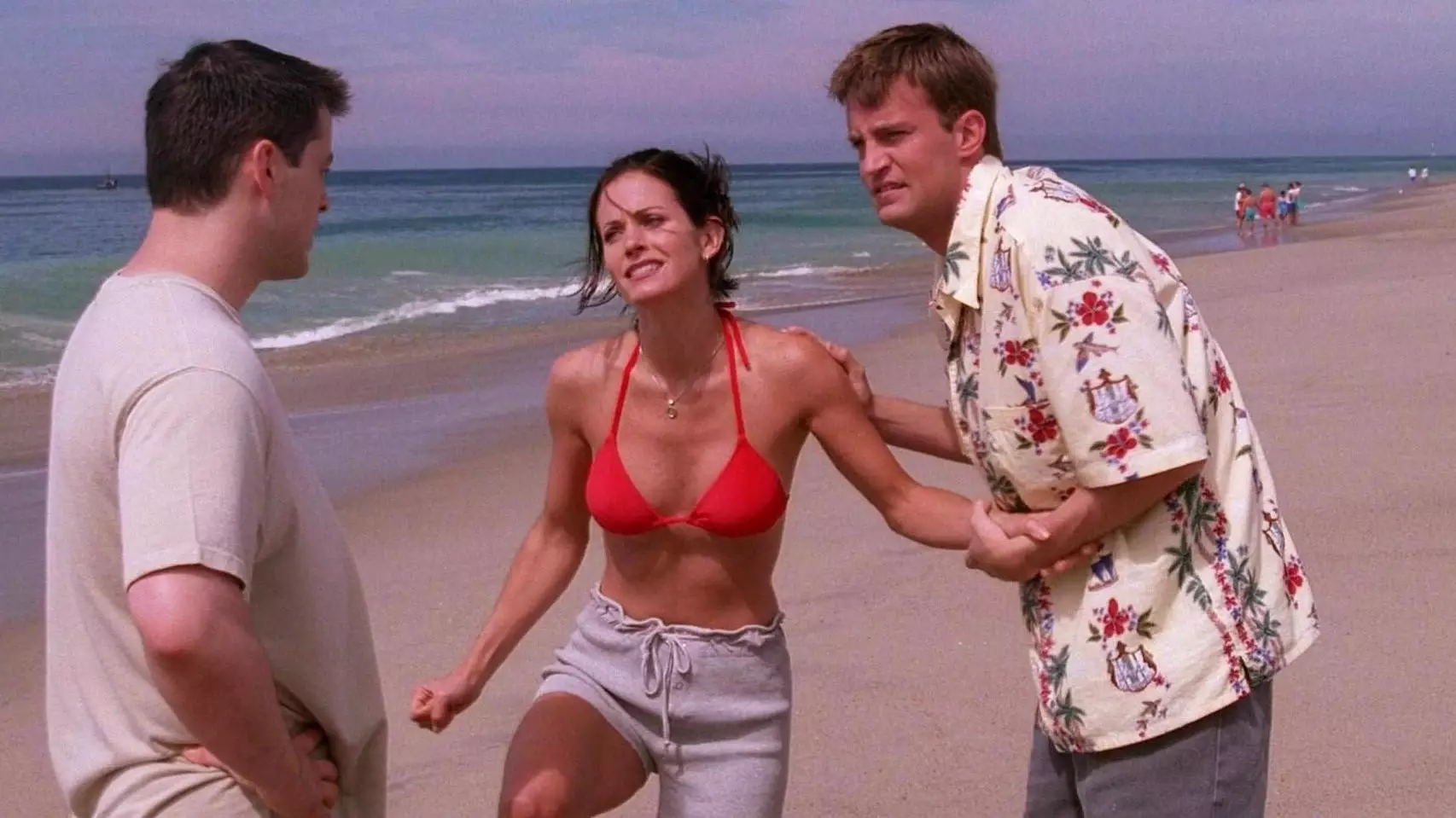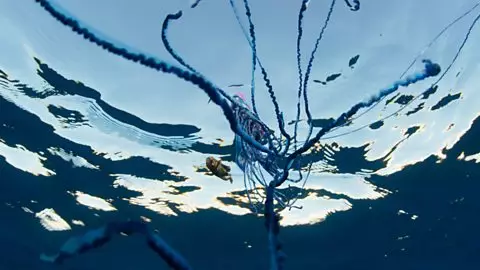
If you've ever been stung by a Portuguese Man O' War, or Blue Bottle as they're known in Australia, you'll know they hurt a lot. I once accidentally swam through dozens of the fuckers and came out of the water with at least 10 still stuck to my body and had to peel off each tentacle.
Credit: BBC / Blue Planet II
It's not an experience I or probably anyone else would want to repeat, but the BBC crew filming Blue Planet II had to put their bodies on the line while filming the latest episode. While viewers were taken on a dazzling and, at times, shocking and depressing, view of the ocean, the close-up footage of the Man O' War were particularly spectacular.
While some of the blue bottle's tentacles are easy to spot, they have many more which can be invisible to the human eye. Even though the crew took as many precautions as possible, they couldn't help being stung.
Camera assistant Andrea Casini told the BBC: "Once you get stung, you start to feel your heart beating really fast, you've got to get out of the water and head eight miles back to shore.

Credit: PA
"The tentacles stick to your skin, so you have to scrape them off, and remove the stinging cells carefully and all the time they are releasing more venom. The pain can last for hours and you would do anything to make that pain go away.
"After we were stung, we tried everything - hot and cold water, even urinating on the wound, which is thought to be a traditional treatment - but it didn't work.
"It was not until we got back to shore and applied cortisone cream, that the intense pain subsided."
Advert
Sounds like they were channeling their inner Joey and Chandler
The BBC programme revealed that some of the tentacles stretch a whopping 30 metres in the ocean and once they come in contact with marine life, they work to pull it into the Man O' War's body until it's digested. While it might not seem like much of a predator, it's believed these species can eat up to 100 fish every day.
The team had to construct a special camera to prevent themselves from getting injured again. It would bop along the surface of the ocean, much like the Man O' War, and drift with the ocean current and wind.
It took a whopping three months to get enough footage in the right conditions to produce the short segment.
The Blue Bottles are responsible for stinging up to 10,000 people in Australia every year. One of the most annoying things about these carnivores is that if a tentacle gets detached, it's still as venomous as when it's attached.
While it's extremely rare, stings on humans can cause death if the venom finds its way to the lymph nodes. That can cause a person's throat to close up, cardiac distress or an inability to breathe.
Advert
Along with cortisone cream, you can apply a solution of ammonia and water, as well as hot salt water or a hot pack, which is known to deactivate some of the venom. Or just piss on yourself.
Credit: BBC
Topics: TV and Film, venom, ocean, Sir David Attenborough